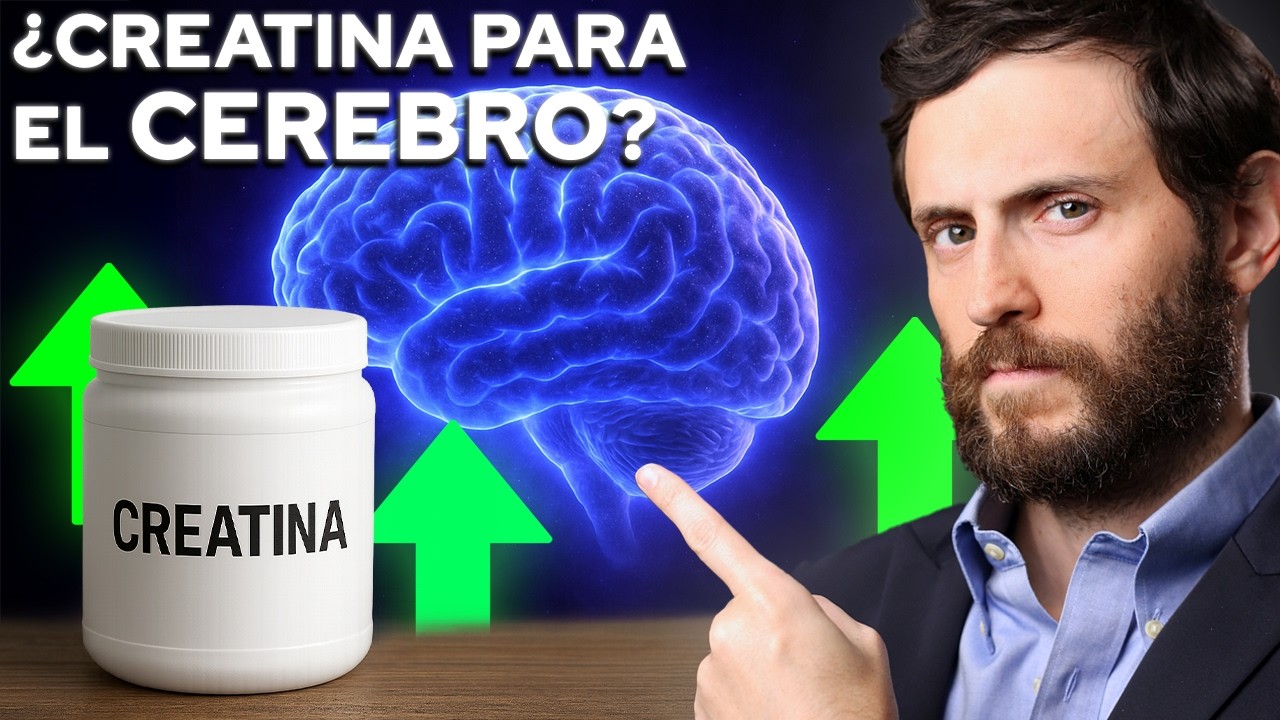Creatine Explained: Muscle Booster, Brain Fuel- or Just Hype? | Vantage with Palki Sharma | N18G
Summary
TLDRCreatine, a popular fitness supplement, is praised for its ability to enhance muscle growth, improve endurance, and support cognitive function. Naturally produced in the body, creatine plays a key role in muscle and brain energy. While it’s generally safe for healthy adults, excessive consumption through practices like 'loading' can lead to side effects like bloating and impaired organ function. For certain groups like athletes, older adults, and vegetarians, creatine supplements may be beneficial. However, it's important to consult a doctor and ensure you're using a legitimate product. Despite its benefits, creatine is not a magic solution.
Takeaways
- 😀 Creatine is a popular fitness supplement that has gained significant attention, including from influencers and athletes.
- 😀 Creatine is naturally produced by the body in the liver, kidneys, and pancreas, and stored in muscles and the brain.
- 😀 It is a quick fuel for muscles, but most people don't produce enough, so supplements or certain foods like red meat and fish can help.
- 😀 Creatine has been researched extensively since the 1970s, showing benefits for muscle building, endurance, and performance during exercise.
- 😀 Recent studies suggest creatine also has cognitive benefits, including improved memory, reduced fatigue, and mood enhancement.
- 😀 It can even aid in the alleviation of symptoms of Alzheimer's disease and help the formation of new brain neurons.
- 😀 Creatine is considered safe for healthy adults, even for long-term use, when taken in proper doses.
- 😀 Dangerous practices, like 'loading' creatine (taking high doses in a short period), can cause side effects such as bloating and impaired liver and kidney function.
- 😀 Unlike a magic pill, creatine requires consistent use for weeks or months before noticeable results.
- 😀 Not everyone needs creatine supplements; most people get enough from their diet, but athletes, older adults, and vegetarians may benefit from supplementation.
- 😀 Always consult a doctor before starting creatine supplements, and ensure the product is legitimate before purchase.
Q & A
What is creatine, and why is it important for our bodies?
-Creatine is a compound naturally produced in the liver, kidneys, and pancreas. It is stored in muscles and the brain, where it serves as a quick fuel for muscles. It plays a crucial role in energy production, especially during high-intensity physical activities.
How do we typically get creatine into our bodies?
-Creatine is primarily obtained through diet, with foods like red meat, fish, and chicken being rich sources. These foods help replenish creatine reserves in our muscles. Supplements are also an option for those needing more creatine.
What benefits do creatine supplements offer?
-Creatine supplements help build muscle, improve endurance, and boost exercise performance. Additionally, they support brain health by enhancing cognitive function, memory, mood, and reducing fatigue. Creatine may also alleviate symptoms of Alzheimer's disease.
Is creatine only beneficial for athletes or bodybuilders?
-No, creatine benefits extend beyond bodybuilding. Studies have shown that it can help with brain function, making it useful for people of all ages, including older adults experiencing muscle loss and vegetarians who may have lower creatine levels.
Is creatine safe to use long-term?
-Yes, creatine is considered safe for healthy adults, even with long-term use. It is one of the most researched supplements, and its findings indicate no significant health risks when taken in recommended doses.
What are the risks associated with high doses of creatine?
-Taking high doses of creatine in a short period, known as 'loading,' can lead to side effects like bloating, stomach pain, and impaired liver and kidney function. This practice is not recommended as it could harm your health.
How long does it take to see results from creatine supplementation?
-Creatine is not an instant fix. It typically takes weeks or months of consistent use before noticeable results occur, such as muscle gains or improved exercise performance.
Who might benefit the most from creatine supplementation?
-Creatine supplements are particularly beneficial for athletes seeking a performance boost, older adults dealing with muscle loss, and vegetarians, who generally have lower creatine levels due to their plant-based diets.
What should you consider before starting creatine supplementation?
-Before starting creatine supplementation, it's important to consult with a doctor, especially if you have any health conditions. Also, ensure the product you buy is from a reputable source to avoid counterfeit or low-quality products.
Can creatine supplementation replace a healthy diet for muscle growth?
-No, creatine supplements are not a magic pill. They can help supplement your diet, but they should be combined with proper nutrition and exercise for optimal muscle growth. A balanced diet and regular workouts remain essential for fitness progress.
Outlines

此内容仅限付费用户访问。 请升级后访问。
立即升级Mindmap

此内容仅限付费用户访问。 请升级后访问。
立即升级Keywords

此内容仅限付费用户访问。 请升级后访问。
立即升级Highlights

此内容仅限付费用户访问。 请升级后访问。
立即升级Transcripts

此内容仅限付费用户访问。 请升级后访问。
立即升级浏览更多相关视频

Qué Sucede en tu Cuerpo si Usas Creatina

The ONLY Supplements That ACTUALLY Work

What Happens to Your Body On Creatine?

Why 5g of Creatine Isn't Enough (and how 25g negates sleep loss)

This Is What Happens When You Take Creatine + Whey Protein (15 studies)

CREATINA: os EFEITOS REAIS no CÉREBRO, no RIM e na MASSA MUSCULAR
5.0 / 5 (0 votes)
